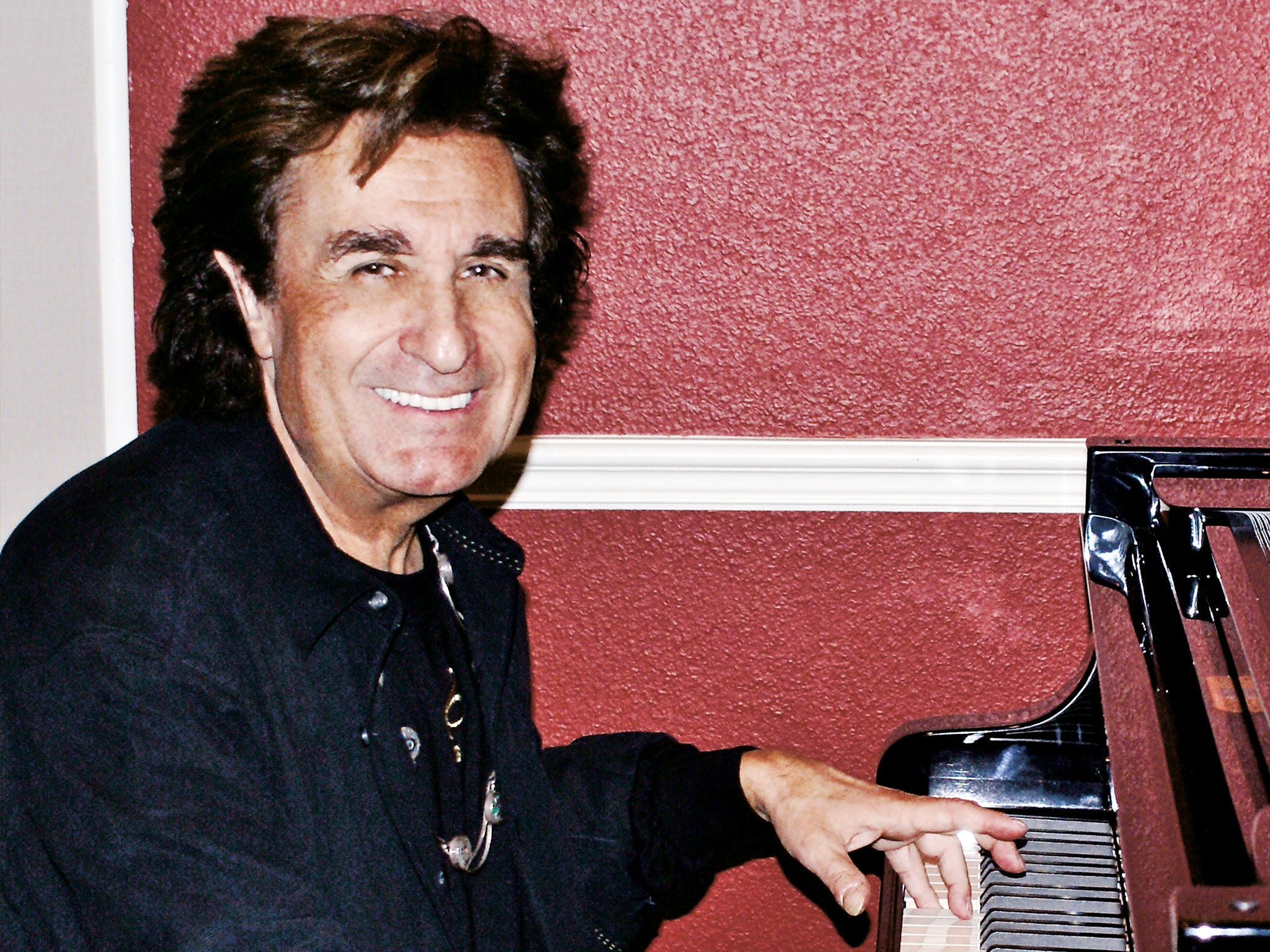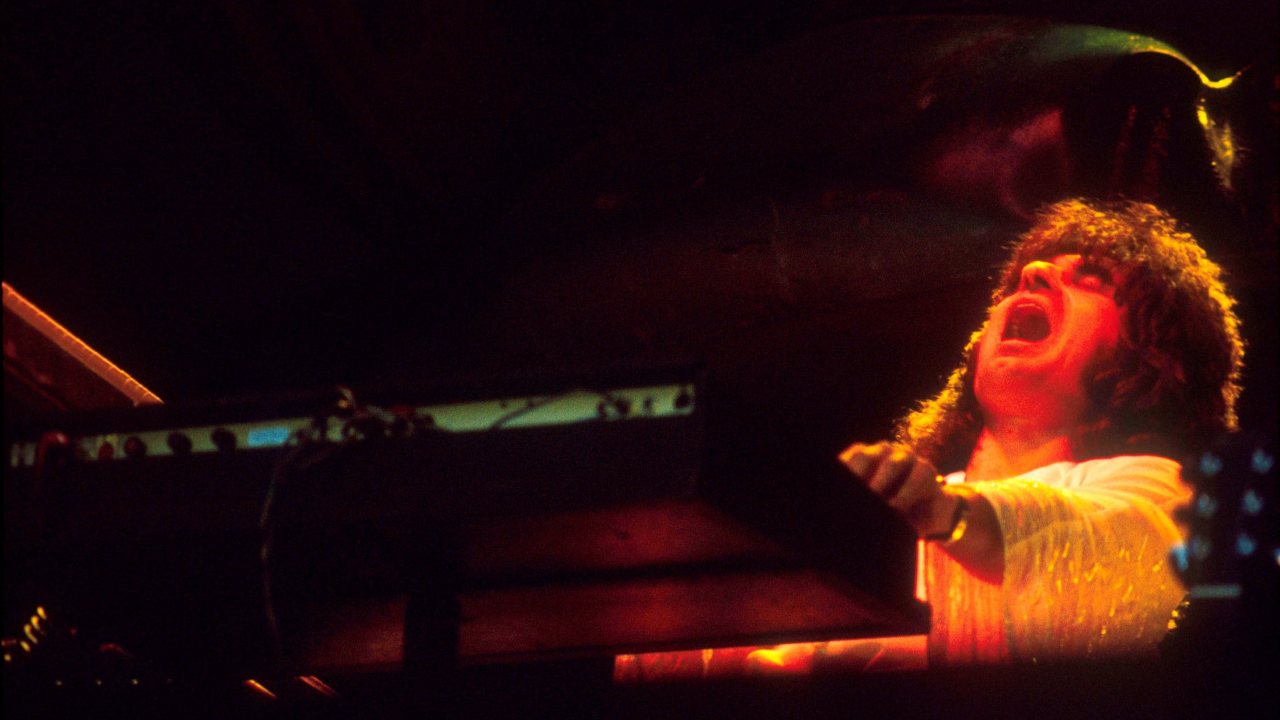Back in November 2014 Yes's seventh studio album Relayer was just getting reissued in surround sound format and Cruise To The Edge was still in its infancy. Prog sat down to chat with former Yes and Moody Blues keyboard player Patrick Moraz, involved in both, to discuss his career and his Alpine Horn!
Patrick Moraz isn’t slow in coming forwards. Back in the mid-60s, when he was still in his 20s, he won the support slot to tour Europe with legendary jazz saxophonist John Coltrane. In 1973 he co-founded Refugee with ex-Nice members Lee Jackson and Brian Davison before being poached to join Yes a year later in time to record Relayer. He followed that stint by joining another progressive rock institution, the Moody Blues, in 1978, staying with them until 1990. He’s won awards for his film scores, collaborated with ex-Yes and King Crimson drummer Bill Bruford, and has even spent time in the jungle with Arnold Schwarzenegger during the filming of Predator. Forever busy with one project or another, we try to understand what makes this Swiss-born precision pianist tick.
How’s your Alpine horn these days?
You know, I still have that Alpine horn! Unfortunately it’s in Los Angeles and I’m now in Florida. Nowadays I can use samples of the horn although I always enjoy playing the real one. Every time I go to Switzerland, there are friends I can borrow one off and I can always go into the mountains and play the Alpine horn there. It really warms my soul!
You were one of the artists performing at sea on the Cruise To The Edge earlier this year. How did you find that?
Oh man, it was unbelievable being reunited with all kinds of friends like Alan White, Steve Howe and Chris Squire. I got to spend a bit of time with Alan, which was great. We were talking about his Ramshackled album. It was great seeing Steve Hackett as well. The camaraderie when all the musicians get together is wonderful. Presto Ballet were a real discovery for me and, of course, there were so many bands I’d not seen before, like Tangerine Dream. I met Eddie Jobson from UK and it’s not impossible that we might record something together in the future. He’s a great guy.
No seasickness then?
No, although one of the concerts had to be rescheduled when the ship was diverted to Mexico instead of sailing to Honduras because there was a huge storm brewing! The second concert I did on the last day of the cruise, I included an impromptu version of Soon, the end section of The Gates Of Delirium, with Renaissance’s Annie Haslam – she did a fantastic job.
You’ve recently recorded a Gentle Giant track for a new symphonic rock album, haven’t you?
Yes, and it’s funny because not only did Gentle Giant open for Yes but I also saw Gary Green and Three Friends while I was on the Cruise To The Edge. Anthony Klein, who is a producer overseeing the Royal Philharmonic Orchestra, and conductor James Graydon got in touch asking if I would be interested in delivering a piano interpretation based on James’ arrangement of Gentle Giant’s Think Of Me With Kindness from Octopus. It took me a nanosecond to say yes! It’s a beautiful song. It’s not really what some would call prog, but it’s prog enough for me!
Have you always liked working with orchestras?
Of course. For many years, a long time before I was in bands, I was writing for film. You know, by the time I did Relayer I was 30 years old and I’d done around 30 scores for movies, so I had a lot of experience at working with orchestras and scoring for strings. After I joined Yes I did the score for the chamber orchestra on Steve Howe’s first solo album Beginnings, which I enjoyed enormously.
It’s 40 years since you recorded Relayer. What was it like joining Yes and working on that album?
It was a huge honour. I loved Tony Kaye and Rick Wakeman’s work in the band. I first met them in 1969 when they were invited to play at the Golden Rose Festival in Montreux and I organised a party for them. Even then they were one of my favourite groups. It was a real thrill to get a call in 1974 from their manager inviting me to attend a Yes rehearsal. I’d never seen so many big joints as I did that day! I loved my time in the group. I jumped from seven keyboards at the time, plus my alpine horn, to 14, because in those days there were no sequencers or computers. It was all magically done by hand! The best thing about being in Yes was the quality of the playing and the audiences. Everywhere we went was sold out!
If Yes rang tomorrow and asked you to rejoin them to play Relayer on tour, what would you say?
Absolutely! Of course! I know the album by heart even after all these years. Any time!
What are the moments that stand out from your time with The Moody Blues?
I’d been with them for a couple of years when we recorded the album Long Distance Voyager in 1980. It stayed at No.1 in the US charts for several weeks – a fantastic breakthrough at that point in their career. That made me feel really good and very secure for all our future recordings and live concerts as well. I always had an impeccable rig of keyboards and machines, and I was always using my three mellotrons in order to recreate the original sounds Mike Pinder had created so well before me. It was a truly magnificent part of my life and I felt it could have lasted much longer than it did. We used to have a real camaraderie.
Have you had any thoughts about retiring?
No! I’ve never been busier. As a musician you never retire. I’ve got so many things I want to release. I compose every day and I’ve got two new albums which I’m currently in the process of finishing. The only thing I would love to do is to play more concerts and I’m even thinking of the best way to do that, so check back with me for news of that!

Image: Phyllis Weitzel-Moraz

